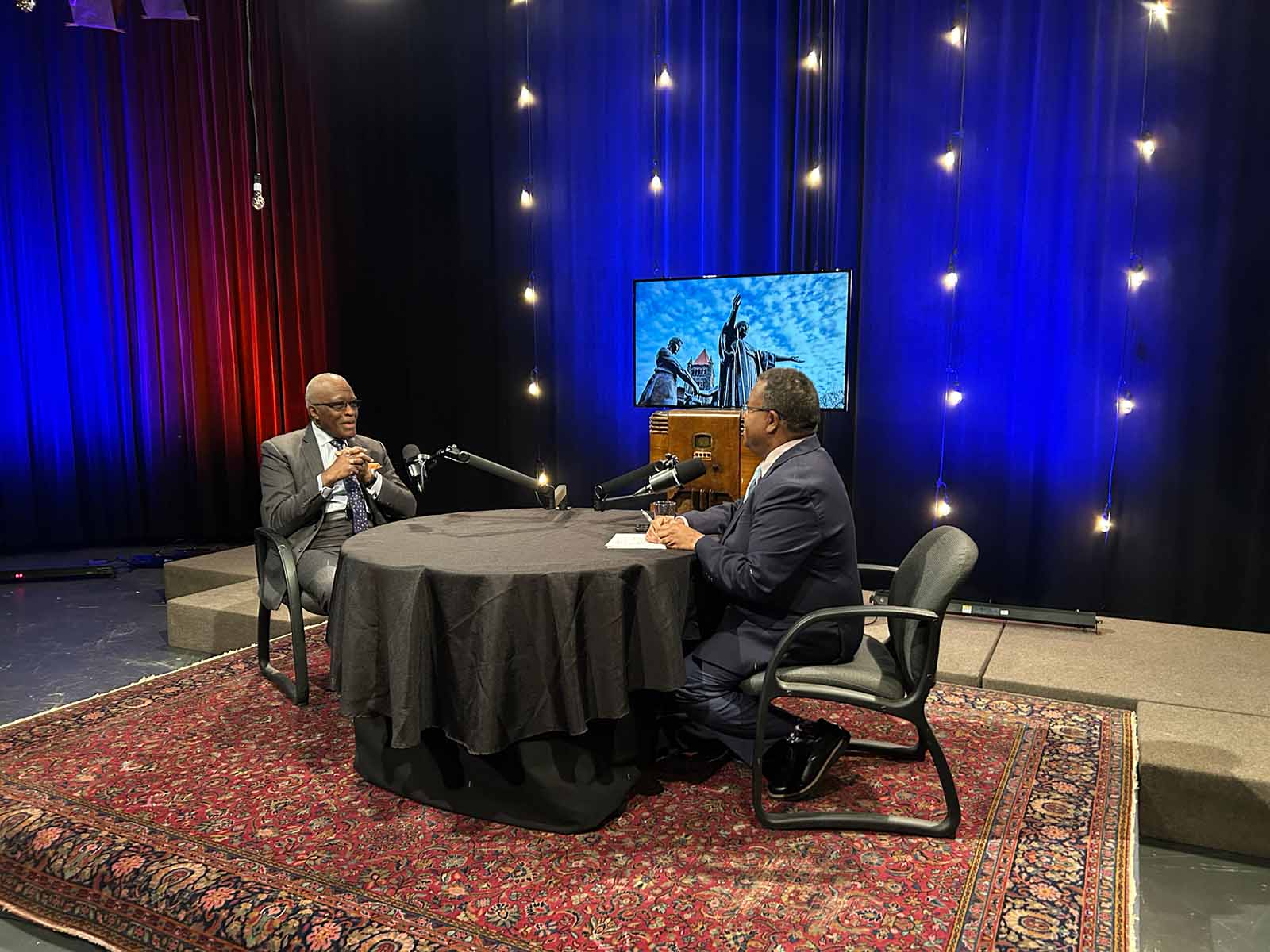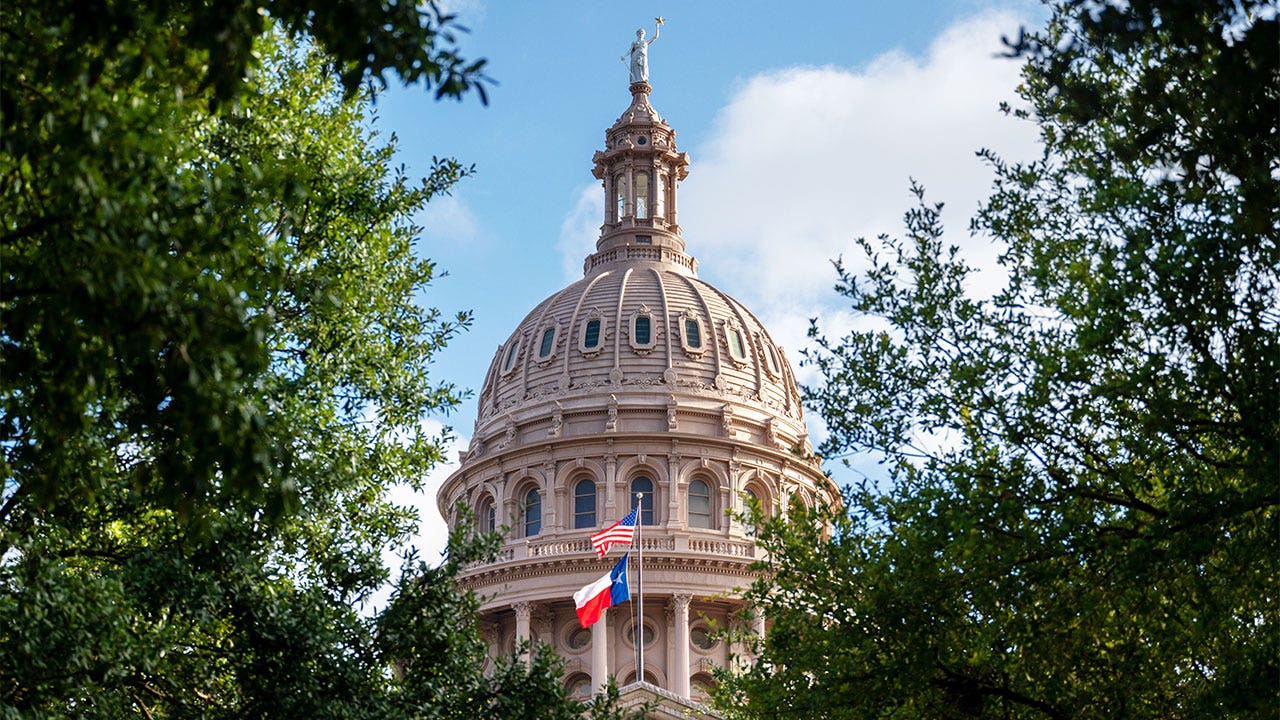CASPER, Wyo. — The Trump administration’s efforts to slash federal government spending will be felt here at home in Natrona County, particularly at the library.
That’s according to the executive director of the Natrona County Library, Lisa Scroggins, who referenced the recent news that the National Endowment for the Humanities has cut or canceled most of its grant programs.
As part of the Trump Administration’s spending cuts identified as necessary by the Department of Government Efficiency, or DOGE, many humanities programs across the country are seeing their grant funding slashed.
This has a direct impact on the Wyoming Humanities Council which, in turn, has a direct impact on the Natrona County Public Library.
The Wyoming Humanities Council funds countless programs across Wyoming, including programs and services offered by the library. Those services, Scroggins said, are in jeopardy.
“The Wyoming Humanities Council does great work in supporting things like library initiatives,” Scroggins said. ” And libraries are part of the humanities. We have directly received grants from the WHC.”
Scroggins referenced a number of different programs that the library offers Casper residents, including book clubs, talk groups, and even the Story Walk, which took place along the North Platte River.
“Currently, we have a book club about women’s mental health,” Scroggins shared. “We’ve partnered with Amy Adwalpalker, a Licensed Professional Counselor from Deep Waters Counseling, and we’re hosting a series of book club discussions, where participants are reading books about women’s mental health. In Wyoming, we know that mental health for everybody is tremendously important, but women face different issues than others; their mental health needs are different. So the book club is one of the programs that we offer, that is funded through the Humanities Council.”
As that program and others show, the library is more than just a place to check out books. It actively impacts the lives and well-being of Natrona County residents.
“We also offer these living room-type conversations where we discuss some tough subjects with community members, and teach them, through modeling, how to express your opinions without negating somebody else’s,” Scroggins said. “We give them a chance to learn to listen and look for ways to create solutions, rather than just creating programs. That’s another program funded through the Wyoming Humanities Council.”
Additionally, the Story Walk has been a major fixture of the community since its inception. Each of these services, and more, are made possible through the Wyoming Humanities Council.
The New York Times reported that the National Endowment for the Humanities has canceled most of its grant programs. It has also put its staff on administrative leave “as its resources are set to be redirected toward supporting President Trump’s priorities.”
Now, Wyoming Humanities is urgently seeking the support of the public at large in order to continue its programs.
That’s according to a release from the organization, which states that “Wyoming Humanities is urgently calling on Wyoming residents to support essential cultural and educational initiatives in the face of devastating federal funding cuts.”
The release states that on the evening of April 2, all state humanities councils were notified that their National Endowment for the Humanities grants, including their general operating funds for the current year, have been fully canceled, effective immediately.
The email, which The New York Times reviewed, was sent out late Wednesday night.
“Your grant’s immediate termination is necessary to safeguard the interests of the federal government, including its fiscal priorities,” the letters said. “The termination of your grant represents an urgent priority for the administration, and due to exceptional circumstances, adherence to the traditional notification process is not possible.”
For Shawn Reese, executive director of Wyoming Humanities, the news wasn’t surprising. However, how the news came definitely was.
“We had gotten notice that DOGE was at the National Endowment for the Humanities at the beginning of the week,” Reese said. “But on Wednesday night, around 10 o’clock, my counterparts in other state councils started emailing, in alphabetical order, that they had received a notice from a suspicious email account, and that these notices were going into their junk mail files. Just one state after the other. Mine ended up getting flagged by our antivirus software and I was only able to extract it from the quarantine today. It was marked as a phishing attempt.”
Reese said he finally was able to read the notice, and the content wasn’t surprising, either.
“We knew DOGE was going to be making cuts to grants and to the staff, because Congress had designated 40% of the NEH’s budget to go directly to states. We weren’t quite sure, until the termination letters, if our state funding would be treated differently than the other grants that NEH makes directly to cultural organizations. But it turns out, we’ve all been treated the same.”
Reese said he knew, for instance, that the Meeteetse Museum District received funding directly from NEH for improvements to the museum, but those funds have been cut as well.
Once Reese gathered and processed the information, he sent out a press release, “urgently” seeking the public’s assistance in support current and future programs.
“This decision threatens Wyoming Humanities’ ability to continue providing invaluable educational and cultural programming,” the release said.
The release notes that, for decades, NEH funding was the cornerstone of Wyoming Humanities’ success. The funding supported programs ranging from community lectures and cultural discussions, to the promotion of literature, history and the arts.
“The federal funding cuts will significantly impact Wyoming Humanities’ ability to sustain popular programs such as Native Narratives, the Center for the Book, Smithsonian exhibits, and more,” the release stated. “These programs offer opportunities for meaningful cultural exchange, exploration of history, and celebration of the arts, and have become a vital part of Wyoming’s educational landscape.”
The programs, Reese said, are a vital part of the arts and culture scene in Wyoming and these funding cuts won’t just cost them at some unknown point in the future; they’re costing the council right now.
“We operate on kind of a reimbursement basis,” he said. “We don’t get all of the federal funding at once; we submit monthly drawdowns. So, we submitted our drawdown quickly the next morning, on the third. And it has not been approved. I’m not sure that there’s anyone who can make those approvals, or if they’re even allowed to make the approvals. So the cut, although effective April 2, actually affects us going back to the beginning of March.”
The library, too, is bracing for even more cuts to its programming, after the entire staff of the Institute of Museum and Library Services was put on immediate leave.
Oil City News reported Wednesday that grant funding from the IMLS is sent to the Wyoming State Library, in Cheyenne, which is then dispersed to public and academic libraries across the state, including the Natrona County Public Library.
“According to the IMLS website, Wyoming received around $1.23 million in the 2024 fiscal year, which Wyoming State Library’s State Librarian Abby Beaver says was roughly what it was expecting for the 2025 fiscal year,” Oil City News reported. “Applications for the 2025 fiscal year have been sent in, but the Trump administration’s actions this week mean that no staff are available for the processing work.”
Between that and the cuts to the National Endowment for the Humanities, Scroggins said that it’s no longer a matter of if programs will be affected; it’s a matter of when.
“The cuts will impact the Natrona County Library,” she asserted. “There’s no could. If [the Wyoming Humanities Council] doesn’t have the funding, they won’t have the grant opportunities. And we have leaned into their grant opportunities, to the benefit of our community. We’ve received them. So could it affect us? Yeah. Not that it could, but that it will.”
The future is unknown, both for the Natrona County Library and for the Wyoming Humanities Council itself. Both Reese and Scroggins are imploring the community to speak to their elected representatives, to donate to the humanities, and to spread the message of the arts wherever, and to whomever, they can.
“We need our community’s voice now more than ever,” Reese said. “Whether you’ve benefited from our programs directly or simply believe in the power of the humanities to unite and inspire, your support is crucial. We are urging citizens to reach out to their elected representatives to restore funding for the NEH and ensure the continued success of these programs.”
Scroggins agrees, and is asking people to spread the word about the different services that the library offers, as well as all of the different programs that the Humanities encompass.
“I think it’s really important to raise awareness that we are here for people,” she said. “Like I said, we have the women’s mental health book club, and we have book clubs on death and dying; those are issues that people face. We have resources here for businesses to grow and thrive; they’re incredibly important. We teach people how to use technology and, of course, we support literacy and doing everything we can to help our community be strong and thrive in an ever-changing world. If you benefit from the library, if you use the library, share your own story about what that looks like.”
For the Humanities Council, this move came as a major blow; one that will impact all aspects of its services.
“It’s really making us rethink all aspects of the organization,” Reese said. “We will need to rely on our reserves and the generosity of our donors. We have ongoing responsibilities. We received funding from the state of Wyoming that we grant out to museums and libraries and historical societies and that funding will continue until the summer of 2026. So we’ll continue to be able to support communities in that way. But other things that we’ve done…we just really need to reevaluate our resources and the programs that we’ve been able to offer in the past.”
Related































